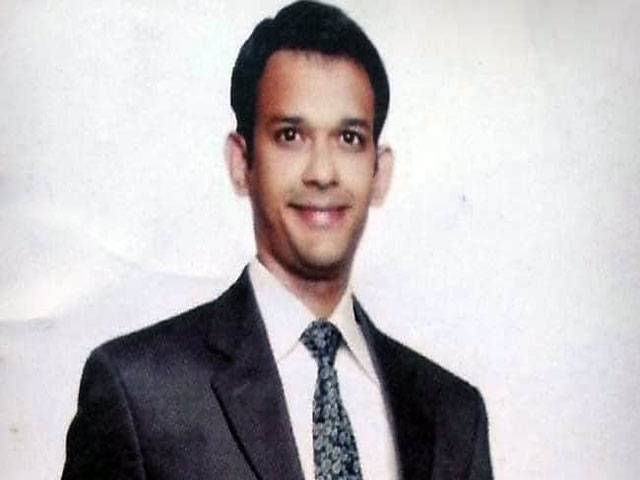ISLAMABAD - Indian spy Hamid Nehal Ansari has been released from the prison upon completion of his sentence, Pakistan announced Monday.
Ansari, a 33-year-old Mumbai resident, was lodged in Mardan Central Prison after being sentenced by a military court to three years’ imprisonment for possessing a fake Pakistani identity card on December 15, 2015. He was arrested in Kohat district in November 2012 for illegally entering the country from Afghanistan.
Ansari had used a fake identity card in the name of ‘Hamza’ and he had entered Pakistan through Afghanistan without travel documents. He was charged for ‘espionage’ and ‘anti-state activities.’ India claimed Ansari had crossed the border to meet a Pakistani girl he met online.
Foreign Office Spokesperson Dr Mohammed Faisal said: “Hamid Nehal Ansari, an Indian spy who had illegally entered Pakistan and was involved in anti-state crimes and forging documents, is being released upon completion of his sentence and is being repatriated to India.”
Ansari will not leave for his country immediately as the Peshawar High Court has granted the government a month to complete his repatriation process. He will be handed over to Indian authorities in January at Wagah Border. Till then, he will be kept at an internment centre.
Last week, a two-judge Peshawar High Court bench, comprising Justice Roohul Amin and Justice Qalandar Ali Khan, heard an appeal filed by Ansari through a senior lawyer. The petition said that the federal government had not taken any steps for his release. Ansari’s lawyer, Qazi Mohammed Anwar, said that his client’s prison term will end on December 15 and he should be released on the morning of December 16.
Ansari was tried in a military court and was awarded three-year imprisonment on December 15, 2015. He was arrested in Pakistan in 2012 with a fake Pakistani identity card.
The government of Pakistan had signed a treaty with India regarding the exchange of nationals, under which both the governments have at least one month to initiate and complete the process of repatriation.
On November 30, an Indian journalist had questioned Prime Minister Imran Khan about the progress on the case. The premier said that it was the first time he has heard of it. “We will do our best,” he said.
Last week, a section officer of the interior ministry had appeared before the PHC and told that it will take them a month to complete the process for his return and will hand him over to Indian officials at Wagah border.
The court was informed that the government of Pakistan had signed a treaty with India regarding the exchange of nationals under which both the governments have one month to initiate and complete the process of repatriation.
The Pakistan India People’s Forum for Peace and Democracy has also appealed to the Pakistani authorities and Prime Minister Imran Khan, to release Hamid Ansari on December 16.
The Indian chapter of the Forum, in a press statement, said: “We believe that Hamid Ansari’s immediate release will send a positive message as it will come in the background of the opening up of the Kartarpur Corridor.”
On November 28, Prime Minister Khan performed the ground-breaking of the four kilometers long Kartarpur Corridor. An Indian delegation comprising Minister for Food Harsimrat Kaur Badal, Minister for Housing Hardeep S Puri, Indian Punjab Minister for Local Government and Tourism and former cricketer Navjot Singh Sidhu attended the event.
Foreign Minister Shah Mehmood Qureshi had also extended invitation to his Indian counterpart Sushma Swaraj and Chief Minister of India’s Punjab province Amarinder Singh but the two declined for different reasons.
Prime Minister Imran Khan later said Kartarpur corridor was a “sincere effort” to improve relations with India. “The (groundbreaking) ceremony was a peace initiative. It was a sincere effort. So was the invitation extended to the Indian ministers,” he said. The nuclear armed neighbours have fought three wars since gaining independence from the British rule in 1947. Pakistan had also organised a ‘family reunion’ for convicted Indian spy Kulbushan Jadhav – dubbed India’s ‘face of terror’ in December 2017. Jadhav’s mother and wife – Avanti Jadhav and Chetenkul Jadhav –were allowed to sit across a glass barrier for 40 minutes and speak to each other. But India alleged that Jadhav’s family was mistreated and the meeting could have been conducted in a more relaxed environment. Pakistan said a convicted spy deserved no facilities adding the glass barrier was meant for security.
Weeks later, Indian army chief Bipin Rawat said Indian army was ready to call Pakistan’s ‘nuclear bluff’ and violate the border to carry out any operation inside Pakistan. “We will call the (nuclear) bluff of Pakistan. If we will have to really confront the Pakistanis, and a task is given to us, we are not going to say we cannot cross the border because they have nuclear weapons. We will have to call their nuclear bluff,” he added.
Pakistan had given a shut-up call to India soon after Rawat’s statement and urged New Delhi not to underestimate Pakistan’s military strength. Back-channel efforts are still on to defuse Pak-India tension.






